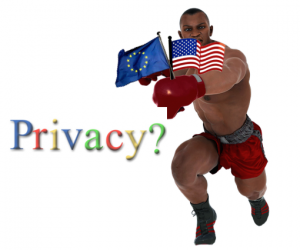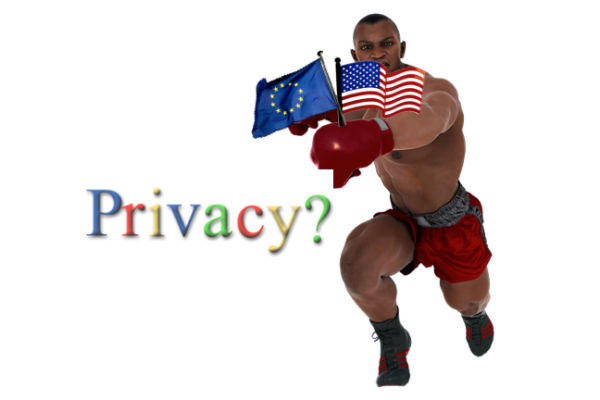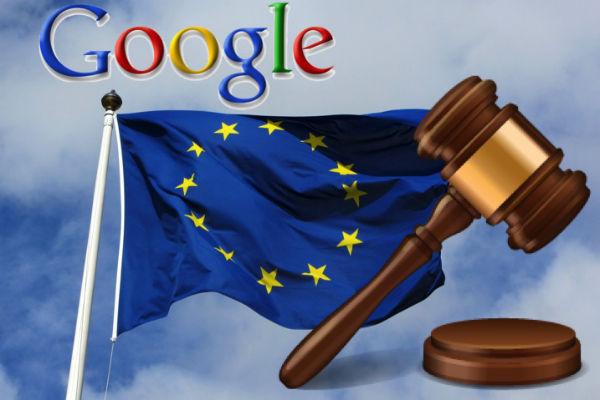Impact of European Privacy Policy on the United States
 Recently there was a groundbreaking case in The European Union about the right of an individual to be “forgotten” on the Internet. As anyone who has ever had an embarrassing photo shared on the internet can attest to, nothing is ever really gone from the World Wide Web. But this new law being put through the system in Europe could change that, especially as it pertains to people accused of—and ultimately acquitted of—a crime or indiscretion. So, the question for many Americans is what this has to do with us. Certain countries in Europe are much stricter than the US in their privacy policies as has been seen in many landmark cases. However, these cases do have an effect on our privacy laws.
Recently there was a groundbreaking case in The European Union about the right of an individual to be “forgotten” on the Internet. As anyone who has ever had an embarrassing photo shared on the internet can attest to, nothing is ever really gone from the World Wide Web. But this new law being put through the system in Europe could change that, especially as it pertains to people accused of—and ultimately acquitted of—a crime or indiscretion. So, the question for many Americans is what this has to do with us. Certain countries in Europe are much stricter than the US in their privacy policies as has been seen in many landmark cases. However, these cases do have an effect on our privacy laws.
In March of 2014, the European Union moved to enact new laws to protect the online privacy of its member states’ populations. The Data Protection Reform Package would protect Internet users in the EU from data brokers collecting and sharing their information.The law, in draft form, was overwhelmingly passed by the European Parliament. However, it has been held up with modifications and is still currently being debated amongst the European Parliament. This specific policy relates to the US in that it was partially brought forth in reaction to the revelations made during the Snowden debacle. The idea that the National Security Agency was “spying” on European citizens outraged many Europeans, causing the parliament to move quickly towards a solution. Of course, while the US still has yet to address the issue with a specific type widespread legislation, once again European privacy values and American practices are tied together.
In Ireland, a student group called Europe vs Facebook was started by activist Max Schrem. Schrem is no stranger to the folks at Facebook. In 2012, his actions caused Facebook to stop offering its “suggested tags” feature, and in 2013, he forced the social media giant to release a large amount of documents containing information about himself which the company had collected. While these actions had ripple effects in the privacy concerns of Americans, perhaps the most important fact is that some of the largest Internet companies have headquarters in Ireland, Schrem’s home country. While these tech companies are drawn to headquarter in Ireland due to the low taxes, they still operate in the United States and therefore any major policy changes affecting users of the company’s products will inevitably affect us here in the US. In fact, Schrem’s push to stop suggested tagging on Facebook stopped the process being offered in the US for some time, though it was brought back to the US in early 2013.
Starting in 2007, Google Street View came under fire in Europe when German citizens felt their privacy was invaded by the Internet giant during the image capturing necessary for the service. The German government got involved and fined Google (though it was a ridiculously small amount for the company). Google then was pushed to blur certain things in the images it took. Faces and license plates were two items that the company attempted to blur for better privacy, but this technology is not fail proof and you can still see faces unblurred on Google Maps. Once again, the push for privacy set in motion by Europe had its effect on the US. At the same time that Google began blurring out images of European license plates, the technology was integrated into images taken in the US. Though it may have just been easier for Google to implement the changes system wide instead of an effort to adapt European policy to the US, the changes were made none the less and we no longer have to worry about strangers being able to pull up our license plates from a simple Google search.
So, while what is happening across the pond may not have an immediate effect on how we live our lives online here in the US, chances are the action will cause a ripple into how we live our lives online. It’s an interesting time right now, when laws and regulations are constantly trying to keep up with the breakneck pace of technology and if Americans care to know what the future holds for them in terms of Internet privacy, Europe may be a good place to start looking.
 About the Author: Eva Velasquez is the President/CEO at the Identity Theft Resource Center, a non-profit organization which serves victims of identity theft. Velasquez previously served as the Vice President of Operations for the San Diego Better Business Bureau and spent 21 years at the San Diego District Attorney’s Office. Eva has a passion for consumer protection and privacy issues and is constantly striving to educate the public about these important topics. She is recognized as a nationwide expert on identity theft and has been featured on the Ricki Lake show and MORE magazine, as well as numerous other outlets.
About the Author: Eva Velasquez is the President/CEO at the Identity Theft Resource Center, a non-profit organization which serves victims of identity theft. Velasquez previously served as the Vice President of Operations for the San Diego Better Business Bureau and spent 21 years at the San Diego District Attorney’s Office. Eva has a passion for consumer protection and privacy issues and is constantly striving to educate the public about these important topics. She is recognized as a nationwide expert on identity theft and has been featured on the Ricki Lake show and MORE magazine, as well as numerous other outlets.









Here are some easy recommendations:
Check the privacy settings for each network and make sure that you aren’t displaying all of your information publicly. Proactively check your settings regularly as they can change. Even though the networks are supposed to notify user of changes, sometimes you might miss a notification.
Limit the number of social media networks that you engage in. If you can’t keep up with the network you won’t keep up with checking the settings.
Understand that the more you share the more vulnerable you are. Think before you post and never share PII on a social network. Shockingly a recent survey revealed that a small percentage of adults have shared their social security number on a social media platform (Forrester).
Strengthen those passwords. All the diligence with privacy settings will be meaningless if your account is hacked. Make it harder for the bad guys and use different passwords for different accounts, at LEAST 8 character, alpha numeric, upper and lower case and a symbol.
Hi Eva,
Any suggestions for what we can do at a user-level to help combat some of these privacy issues within the social media sphere?